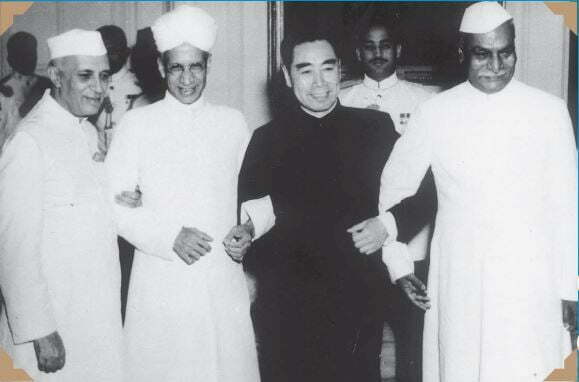
Gandhiji wrote only the resolution by his hand on a paper a few minutes before his assassination of January 30 1948 and he tucked the paper under his seat. It was handed over to Prime Minister Jawaharlal Nehru on May 12, 1964. Nehru was surprised to read the resolution that Mahatma Gandhi intended to move at the next All India Congress Committee session seeking dissolution of the Congress as the party. Nehru did not get sufficient time to carry it forward but his descendants provided the opportunity and the cause to the Indian electorate to write it off. In any case, nearly eighty percent of the electorate of two new generations had no time even to read about the historic role played by the Congress to gain Independence.
Two generations had experienced merely the conversion of the role for the party from being an instrument of freedom struggle and for building new India into a weapon of power-wielding by the family. The turning point was the absolute majority verdict gained by Indira Gandhi in 1971 that proved wrong all political speculations of her crushing defeat. It may have led her to believe, she did not need the party as a democratic apparatus. She launched on converting the party into a personal instrument. She engineered the ideological conflict by creating two forums within. The net effect was her elevation as above ideologies.
After the last organizational elections in 1972, she converted the party into the nominated structure with every post in the party made dependent on her pleasure or displeasure. She punished Chimanbhai Patel for challenging her authority to nominate chief ministers by financing the Navnirman, students’ movement in Gujarat in 1973. All student leaders were admitted to the party soon after Chimanbhai was dethroned. It may appear to have consolidated her control over the party but it also led to her political isolation. No leader stood up to defend her in a fight with the growing opposition. More than it, masses began to lend their ears to the opposition. The Indian mass remained unimpressed by even the successful nuclear test that proved India’s elevation as the nuclear power.
She had lost the popular base was proved by the 1977 elections. She sought and got the place in history after her dramatic return to power in 1980 not as the first choice but due to disenchantment with others. The 1984 December election within two months of her assassination was the verdict for India’s integrity. It was last time the party had verdict but not in nine elections thereafter. Even though the veil of mourning for her husband, Sonia Gandhi was revealing that the Congress party was for her the family serfdom. She did not allow Narsimha Rao enough time and leisure to consolidate the party based on the economic growth he delivered.
Her lack of comprehension of India’s social psyche was reflected in many ways. No one had taught her of political, social, and economical peculiarities of India nor did she have the ability to read the rapid social transformation that began with the global winds wafting through India also. Her elevation as the party chief in October 1998 was for her only elevation as the head of the family estate. With the same set of advisers and party functionaries she continued to hold the office of the party president for 18 years, the longest term in the history of the party with the sole objective of keeping the seat warm for her son Rahul to take over. In 18 years, the party lost power in the state after the state. Each loss was attributed to the inability of the state unit leaders in converting goodwill generated by the mother and his son into votes for the party.
The harsh reality was India has undergone transition through three generations. We now have literacy state spills over 85 percent from 49 percent in 1971. 96 percent of children are attending a school that denotes the social and psychological transformation of even the poor. The steep decline in the birth rate indicates greater and wider acceptance of small family norms. For new generations, Independence is their birthright and not the gift by any political being.
The freedom struggle, contribution, and sacrifices by the Congress for independence, sacrifice by Indira Gandhi for integrity, and unity are merely pages of history and they hardly have time, inclination, or the opportunity to read these pages. They can be inspired only by men and women in social services. No one lacking self-respect can command influence and self-respecting individuals cannot have a place in the political structure that is run like a family estate.
Two terms of the Congress-led coalition government is ample evidence to prove the inability of the party to understand the social transition to evolve the program and agenda for the party, to stop treating the party as the family serfdom and make enough space within for self-respecting dedicated individuals wedded to serve humanity.
Perhaps Gandhiji had visualized the inevitable change in the role of the party cadre. In the freedom struggle, the easily identifiable enemy was the power establishment. In independent India, the popular government cannot be a target to fight with for the party cadre. Hence it cannot be part of the machinery. Hence he advised its dissolution. Indira Gandhi did not dissolve but converted into a personal fiefdom. Rahul Gandhi was conveyed as much by a young Tribal girl in Bastar that young hovering around him during his visits were aspirants of posts to include the new defining post as a weight to their visiting cards only. They vanish as soon as he leaves. With them also vanishes impact his words as dignitary may have caused. Every Congressman leader or worker cannot be Mahatma Gandhi to carve out a permanent niche in human minds. The Gandhi family also needs to realize that India of 1971 was left far behind.

